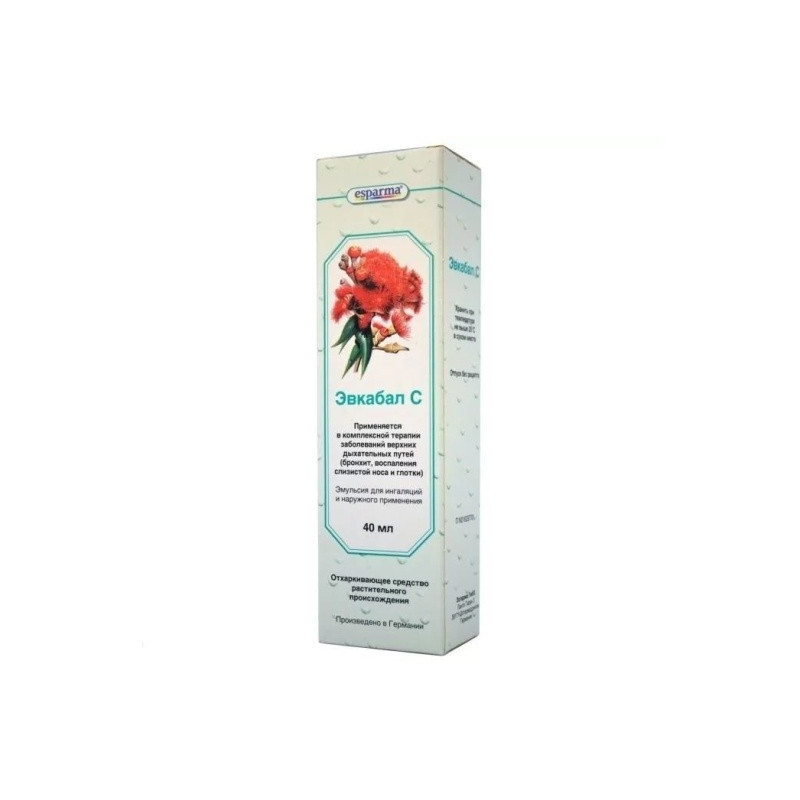



 All payments are encrypted via SSL
All payments are encrypted via SSL
 Full Refund if you haven't received your order
Full Refund if you haven't received your order
Evkabal S has a expectorant effect.
Emulsion for inhalation and external use.
Bronchitis (as part of complex therapy), inflammation of the mucous membrane of the nose and pharynx.
The feasibility of using the drug during pregnancy and lactation is determined by the attending physician.
The drug is intended only for inhalation and external use. With an erroneous ingestion may develop nausea, vomiting, diarrhea. After taking a bath should not take a shower and rub with a towel. Avoid contact with eyes.
100 g of the emulsion contains eucalyptus oil 10.0 g, pine needle oil 3.0 g;
Excipients: cetyl stearyl alcohol; glycerol monostearate; macrogol stearate; sodium cetyl stearyl sulfate; trometamol; citric acid monohydrate; guaiazulen, purified water.
Evkabal apply topically.
For grinding: in the absence of other appointments, it is recommended to apply a strip of emulsion about 3-5 cm long on the skin of the chest and interscapular area 2-3 times a day and rub it well.
For steam inhalations: Add a strip of emulsion about 3-5 cm long in 1-2 liters of hot water, mix and breathe steam under a towel.
For baths (mainly used for infants from 2 months and young children): a strip of an emulsion 8-10 cm long is added to 20 liters of water at a temperature of 36-37 ° C (for infants) or 2 strips of an emulsion 10 cm long by 40 liters ( for younger children), bathe children about 10 minutes. Baths are repeated until the complete disappearance of symptoms. During the week you can take a bath 3-4 times. Additionally, if necessary, 2-3 times a day, the emulsion is rubbed into the skin of the breast and interscapular area. At such events, children are recommended bed rest.
Irritation of the skin and mucous membranes, increased bronchospasm, allergic reactions.
With the simultaneous use of drugs, the metabolism of which is carried out in the liver, a decrease in the intensity or shortening of the time of action of the latter is possible, since components of eucalyptus oil, which is part of the drug, stimulate the enzyme systems of the liver.
In a dry place, at a temperature not higher than 25 ° C.
